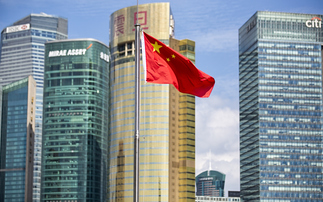As China's economy continues to slow, the World Bank has warned Vietnam and South Korea could snap up more of China's share of the global export market. Annabelle Williams reports.
The World Bank warned last month it expects China to miss out on a resurgence in export demand from developing countries as economies start to recover. This marks a change of dynamic in the region as historically, China’s export-led economy has helped bolster growth in the region as a whole.
In contrast, the World Bank highlighted Vietnam as a country which is “extremely successful” in capturing a chunk of the global export market, as it has “diversified in to new sectors and integrated in to global value chains”.
South Korea’s economy also received praised for rapidly moving its workforce out of agricultural labour in to more productive sectors over the last 20 years, and swiftly making a more recent shift towards more intensively-skilled labour.
Export engines
The rebounding strength in these export-led economies has not gone unnoticed by investors.
Andrew Graham, investment director and head of Asia at Martin Currie Investment Management, expects Taiwan and South Korea to push Asia ahead to better growth than last year – despite China’s slowdown.
“In Asia ex-Japan, there will be slightly better growth this year of 4% to 4.5%, compared to 4% in 2013. This improvement will be due to export-led economies, particularly Taiwan and, to a lesser extent, South Korea,” he said.
South Korea has captured attention recently due to efforts to reform its ‘chaebol’ system of business conglomerates.
These family-run business empires have been accused of using their power to choke off small and medium-sized businesses.
Public scrutiny of chaebol practices has led the government to enact laws to curb their power, and more reform could be in the pipeline.
New reforms
The government already moved to support the market this year, announcing plans to cut tax on dividends in legislation which should go to parliament this autumn.
Matthew Vaight, manager of the M&G Asian fund, believes South Korea stands out for value as the potential for change in the business community is not being priced in to equity valuations.
“South Korea already boasts a number of world-class businesses, but investors have been wary about the fact many of them are family-run and pay little attention to the interests of minority shareholders,” he said.
“Over time, though, it is likely that corporate governance standards in South Korea will improve and companies will become more shareholder-friendly. This represents a source of opportunities for patient investors, given valuations do not presently discount any improvement.”














